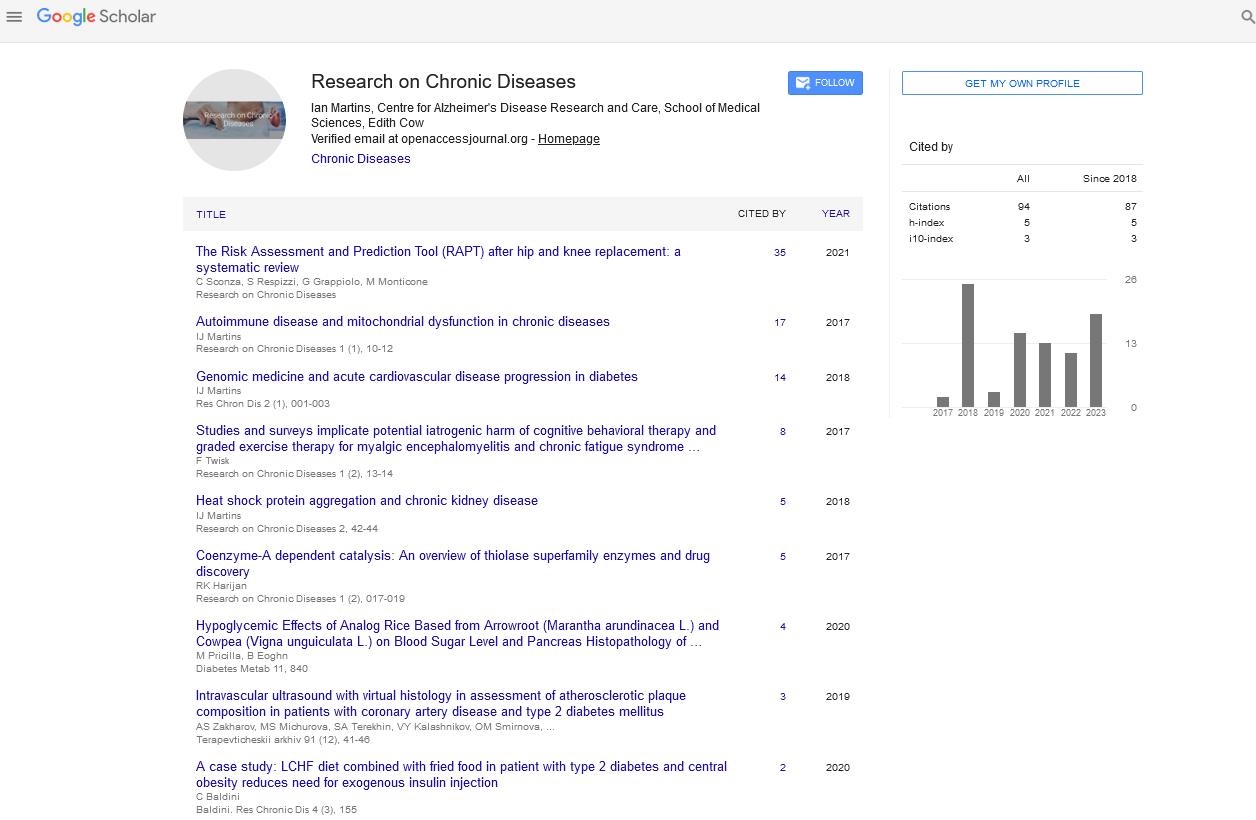Short Communication - Research on Chronic Diseases (2020) Volume 4, Issue 4
Modulation of inflammation and its effect on diabetes, autoimmunity, chronic disease and healthspan
Camillo Ricordi
University of Miami, USA
Abstract
Diet induced inflammation is affecting the incidence and progression of many chronic disease conditions. Lifespan has historically increased, but not healthy lifespan (healthspan). In the USA, lifespan has decreased for 3 consecutive years, and projections are that new generations of children may be the first ones to have a shorter lifespan compared to their parents. Over 90% of Americans over age 65 are affected by at least one chronic degenerative conditions, with unsustainable implications also for health care costs, which at $3 Trillion, already represent 18% of USA GDP. Recent results from our group and from others indicate that cell based therapies, nutritional and lifestyle intervention could have a profound impact on disease progression. Eight year follow-up on a randomized controlled trial (RCT) of intrapancreatic Mesenchymal Stem Cell (MSC) infusions indicate a significant decrease of chronic complications related to diabetes disease progression and recent results from pilot clinical trials indicate that nutrients and supplements could impact disease susceptibility and progression, including but not limited to dietary fatty acids, polyphenols, anti-oxidants and vitamin D3. Incidentally, MSC, Omega3 and vitamin D3 share immunomodulatory and anti-inflammatory pathways. Omega 3 levels are also inversely associated with all-cause mortality and low vitamin D levels are associated with higher mortality in diabetes. Four RCT are in progress to determine the effect of high dose Omega 3 and Vitamin D on progression of Type 1 Diabetes (T1D; new-onset and longterm) in both pediatric and adult subjects. A better understanding of the relationships between, nutrients, inflammation and chronic disease risk/progression will allow development of improved strategies to modulate inflammation to prevent and treat chronic diseases. Bioactive molecules and supplements could complement healthy diets providing a wellness baseline to unable the success rate of cellular therapies and pharmacologic interventions, and to improve the overall healthspan by preventing disease recurrence
Biography
Camillo Ricordi is the Stacy Joy Goodman Professor and Director of the University of Miami Diabetes Research Institute and Cell Transplant Center. Acknowledged by his peers as one of the world’s leading scientists in diabetes cure-focused research and cell transplantation, Ricordi is wellknown for inventing the technology that made it possible to isolate large numbers of pancreatic islets and for performing the first series of successful clinical islet allotransplants. Research interests include immune tolerance induction, prevention and reversal of autoimmune diseases, the definition of anti-inflammatory and regenerative medicine strategies, to prevent or treat chronic diseases, and to prolong healthy lifespan (healthspan). Honors and awards include the ADA Outstanding Scientific Achievement Award; Knighted by the President of the Republic of Italy; inducted into the National Academy of Inventors, USA; member of the Supreme Council of Health, Italy. Publications: 1048; citations: 42,400; H-index: 96.
